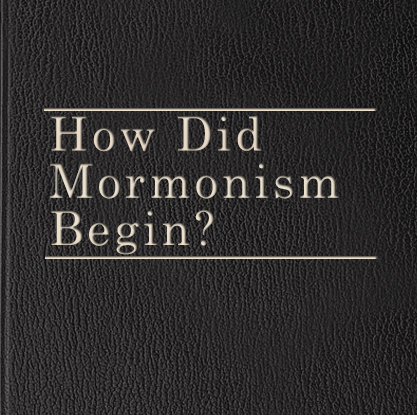The Truth According to the Mormon church
DISCREPANCIES OF THE FIRST VISION
Neither Mormon missionaries nor its leaders will reveal the inconsistent details of the origin of Mormonism. There are several factors which cripple Smith’s explanation of what surrounded his “first vision.” First it is odd how Joseph Smith did not even record his “encounter” with the Personages (God the Father and Jesus the Son) until 1838, eighteen years after he claimed it happened (J. Smith 47). Meanwhile, Joseph did have conversations with many of his associates about it before that time. However, research indicates that the accounts greatly varied by the time the official record was accepted (Groat). Second, there was no revival in the Palmyra area in 1820 as Smith reported. Investigation of church records and newspaper articles by Protestant minister Wesley P. Walters assert that a revival did not occur until 1824 when Smith was 19 years old. In fact none of the three churches mentioned by Smith (Methodists, Baptists, Presbyterians) indicate that there was any activity in 1820 (Langfield 14). Third, it is convenient that Smith was the only witness to the “first vision” which is the foundation of Mormon faith. This places the entire validity of their religious institute – which they insist is Christ’s church – on the testimony of one teenage boy who had a secret encounter. This is in stark contrast with the noticeable nature of the Gospel of Christ and the establishment of His church in the first century. When a high priest asked the Savior about His disciples and doctrine, “Jesus answered him, I spake openly to the world; I ever taught in the synagogue, and in the temple, whither the Jews always resort; and in secret have I said nothing” (Joh 18:20). Jesus told His apostles,
“…These are the words which I spake unto you, while I was yet with you, that all things must be fulfilled, which were written in the law of Moses, and in the prophets, and in the psalms, concerning Me. Then opened He their understanding, that they might understand the scriptures, And said unto them, Thus it is written, and thus it behoved Christ to suffer, and to rise from the dead the third day: And that repentance and remission of sins should be preached in His name among all nations, beginning at Jerusalem. And ye are witnesses of these things. And, behold, I send the promise of my Father upon you: but tarry ye in the city of Jerusalem, until ye be endued with power from on high ” (Luk. 24:44-49).
Not only did Jesus foretell the details of the coming of His church, He revealed it openly. When that time arrived on the Day of Pentecost in Jerusalem, “Parthians, and Medes, and Elamites, and the dwellers in Mesopotamia, and in Judaea, and Cappadocia, in Pontus, and Asia, Phrygia, and Pamphylia, in Egypt, and in the parts of Libya about Cyrene, and strangers of Rome, Jews and proselytes, Cretes and Arabians” were present to behold the miraculous power of the Holy Spirit and establishment of the church just as the witnesses heard it (Act. 2:9-11). This monumental event fulfilled Joel’s prophecy (Act. 2:16ff; Joel 2:28ff). None of it was clandestine. Concerning Jesus’ return from the grave Paul writes,
“…And that He was buried, and that He rose again the third day according to the scriptures: And that He was seen of Cephas, then of the twelve: After that, He was seen of above five hundred brethren at once; of whom the greater part remain unto this present, but some are fallen asleep. After that, He was seen of James; then of all the apostles. And last of all He was seen of me also, as of one born out of due time” (1 Cor. 15:4-8).
The church of Christ was well documented and well known by prophecy and word of mouth (1 Sam. 2:3; Act. 1:4-8), so there would be no question of its significance. Fourth, if Smith had access to the entire Bible as he did (even quoting James 1:5) and believed it, why did he not simply adhere to the inspired word surrounding that passage? Why did he need authority to organize a church and its doctrine that had already been established? There is a difference between restoring and reforming. If he wanted to restore the Gospel of Christ, he already possessed the information, as did so many others on earth. No further revelation would be necessary. Paul wrote, “All scripture is given by inspiration of God, and is profitable for doctrine, for reproof, for correction, for instruction in righteousness: that the man of God may be perfect, thoroughly furnished unto all good works” (2 Tim. 3:16-17).



